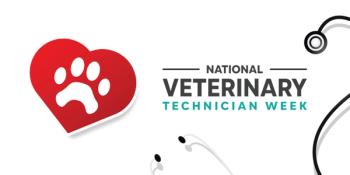
Political swing shapes climate for DVM initiatives
National Report - With at least 24 DVMs now calling state legislators their colleagues, the profession has never been more poised to bolster veterinary medicine's voice and initiatives.
NATIONAL REPORT — With at least 24 DVMs now calling state legislators their colleagues, the profession has never been more poised to bolster veterinary medicine's voice and initiatives.
That review comes from Adrian Hochstadt, JD, CAE, director of the American Veterinary Medical Association's (AVMA) State Legislative and Regulatory Affairs. The four-seat gain within state governments plant a DVM in nearly half the general assemblies in the United States.
Although a majority of veterinarians are small business owners and Republicans, the political party's hit this election failed to stymie DVM bids outside of Dr. Chip Beckett's Connecticut campaign for a Senate seat in his democratic district and the possible election of Dr. Krayton Kerns, a Montana candidate for state representative who, at presstime, awaited a Dec. 1 recount.
Hochstadt adds that veterinarians' high credibility, noted in public polls, make them attractive candidates.
"Considering the number of veterinarians in the U.S. and the fact that their training and expertise is so different than that of a legislator makes this gain remarkable," he says. "I think it's a wonderful development. The more veterinarians serving in public policy of any type, the more impact they make. They're generally looked at as the defacto experts when they walk into a legislature on health issues."
Federal level
Those topics often range from bioterrorism and disease prevention to animal health and welfare issues.
Dr. Mark Lutschaunig, director of the American Veterinary Medical Association's Governmental Relations Division (GRD), downplays the influence of Congress' political shift as Democrats take control of both houses in January. Despite the nation's tilting ideology on politics, the Nov. 7 re-election of Sen. John Ensign cements two veterinarians as federal lawmakers, both Republicans.
"Overall, because we're traditionally bipartisan, we work both sides of the aisle," he says. "I don't suspect much will change. Now that we have a bunch of new representatives and senators, we're going to have to build new relationships. I'm sort of thinking this won't have a major effect on the initiatives we have."
Those initiatives include holdovers from the 109th Congress, in lame duck session at presstime, such as the Veterinary Workforce Expansion Act, which seeks to provide $1.5 billion during the next decade to expand the size of veterinary schools and increase the number of DVMs trained in public health and biomedical research. Another focus is the National Veterinary Medical Services Act, which passed with $500,000 in funding last year but appears stuck in the rules-making process within the United States Department of Agriculture's Cooperative State Research, Education and Extension Service.
Also on the GRD agenda is continued opposition of the American Horse Slaughter Prevention Act, which insiders predict will reappear in the 110th Congress. Despite a large consortium of support to ban the slaughter of horses on American soil for consumption, AVMA fears the measure will end what it deems "humane euthanasia" in U.S. plants and spark the shipment of unwanted animals to Mexico where there's less slaughter oversight. The association also questions the nation's resources to handle thousands of unwanted animals considering an estimated 90,000 horses go to slaughter in the United States each year.
Language concerning food animal identification, welfare positions, environmental issues and animal feeding operations make the 2007 rewrite of the Farm Bill a major GRD concern. Hearings began on the bill in September, and as Lutschaunig explains, the measure is ripe for activist initiatives.
"We expect there will be a number of animal welfare positions attached to the Farm Bill, and we're aware that tends to be a key area for animal rights agendas," he says. "We come from a science-based perspective. We'll share that with the House and Senate and go from there."
Newsletter
From exam room tips to practice management insights, get trusted veterinary news delivered straight to your inbox—subscribe to dvm360.






